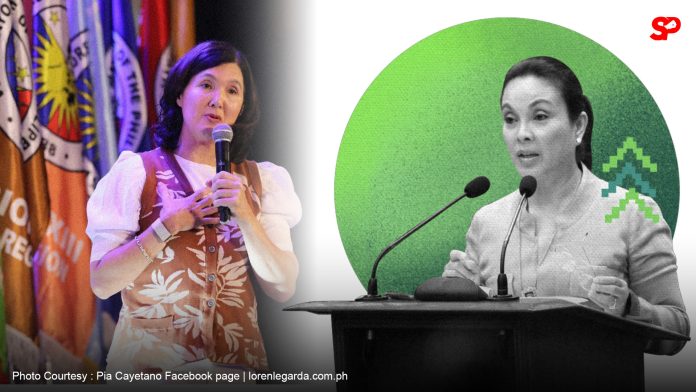By Sam Ramos
The Philippines, often celebrated for its history of strong female leaders, has yet to see a woman assume the role of Senate President. As the nation strives for greater gender equality in leadership, it is time to prepare for this long-overdue milestone. Among the notable figures who have proven their capability to lead are Senators Loren Legarda and Pia Cayetano, both of whom have demonstrated exceptional legislative competence and leadership qualities throughout their careers.
Senator Loren Legarda, a four-term senator, is known for her work on climate change, sustainable development, and cultural preservation. Her ability to navigate complex policies and forge consensus among diverse political factions has positioned her as a formidable leader. Similarly, Senator Pia Cayetano, with her advocacy for health, education, and women’s rights, has consistently pushed for progressive reforms. Both leaders have shown that they possess the vision, expertise, and determination required to guide the Senate through critical legislative debates and national challenges.
The appointment of a woman as Senate President would not only shatter a symbolic glass ceiling but also bring a fresh perspective to one of the country’s most powerful institutions. Women leaders have been instrumental in advancing inclusive policies and ensuring representation for marginalized sectors. A woman Senate President would send a powerful message about the Philippines’ commitment to gender equity and inspire the next generation of women to step into leadership roles.
Moreover, having a woman at the helm of the Senate could enhance the chamber’s ability to address issues that are often sidelined in national debates. Policies on maternal healthcare, gender-based violence, climate resilience, and education equity often require nuanced understanding and dedicated focus—areas where women leaders have historically excelled.
A woman Senate President, armed with legislative experience and compassion-driven leadership, would amplify the Senate’s capacity to legislate on issues that directly impact Filipino families and communities. This is not just a symbolic move; it is a necessary step toward creating a more balanced, effective, and responsive government.

